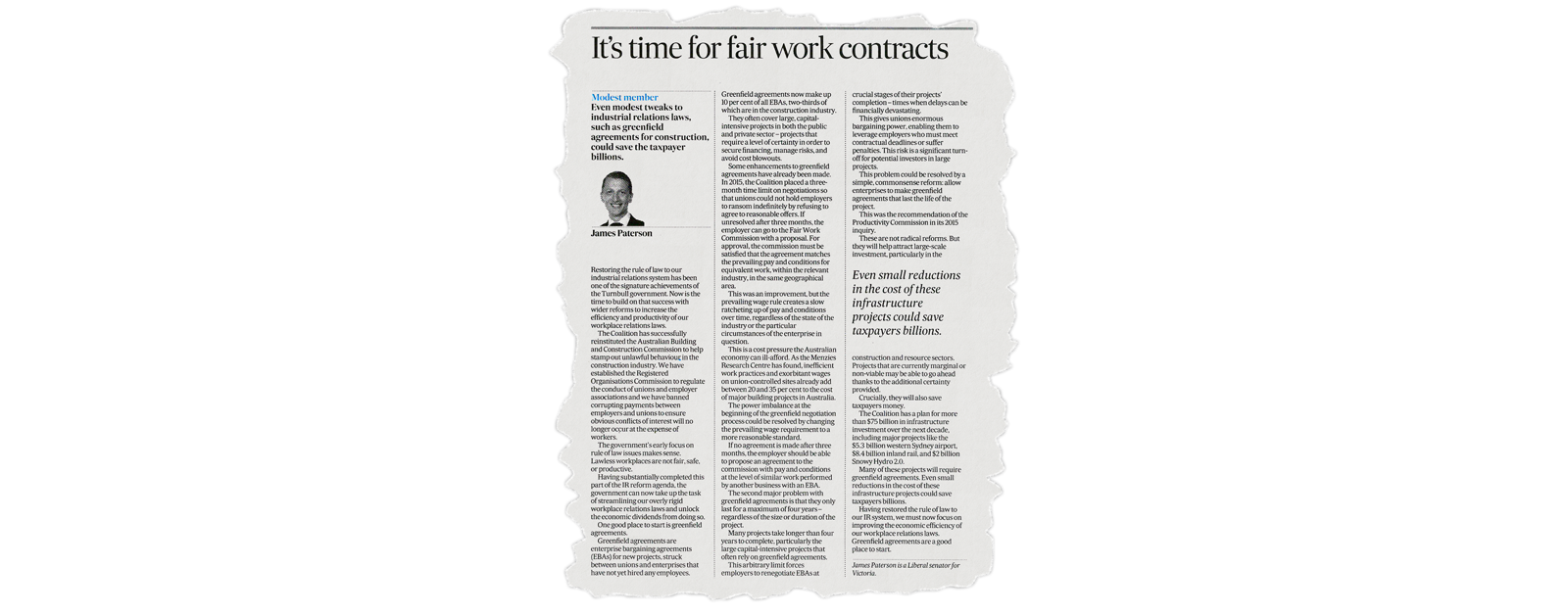Media
|
September 17, 2017

One good place to start is greenfield agreements.Greenfield agreements are enterprise bargaining agreements (EBAs) for new projects, struck between unions and enterprises that have not yet hired any employees. Greenfield agreements now make up 10 per cent of all EBAs, two-thirds of which are in the construction industry.They often cover large, capital-intensive projects in both the public and private sector – projects that require a level of certainty in order to secure financing, manage risks, and avoid cost blowouts.Some enhancements to greenfield agreements have already been made. In 2015, the Coalition placed a three-month time limit on negotiations, so that unions could not hold employers to ransom indefinitely by refusing to agree to reasonable offers. If unresolved after three months, the employer can go to the Fair Work Commission (FWC) with a proposal. For approval, the FWC must be satisfied that the agreement matches the prevailing pay and conditions for equivalent work, within the relevant industry, in the same geographical area.This was an improvement, but the prevailing wage rule creates a slow ratcheting up of pay and conditions over time, regardless of the state of the industry or the particular circumstances of the enterprise in question.
This problem could be resolved by a simple, common sense reform: allow enterprises to make greenfield agreements that last the life of the project.This was the recommendation of the Productivity Commission in its 2015 inquiry.These are not radical reforms. But they will help attract large-scale investment, particularly in the construction and resource sectors. Projects that are currently marginal or non-viable may be able to go ahead thanks to the additional certainty provided.Crucially, they will also save taxpayers money.The Coalition has a plan for more than $75 billion in infrastructure investment over the next decade, including major projects like the $5.3 billion western Sydney airport, $8.4 billion inland rail, and $2 billion Snowy Hydro 2.0.Many of these projects will require greenfield agreements. Even small reductions in the cost of these infrastructure projects could save taxpayers billions.Having restored the rule of law to our IR system, we must now focus on improving the economic efficiency of our workplace relations laws. Greenfield agreements are a good place to start.
This article originally appeared in The Australian Financial Review.